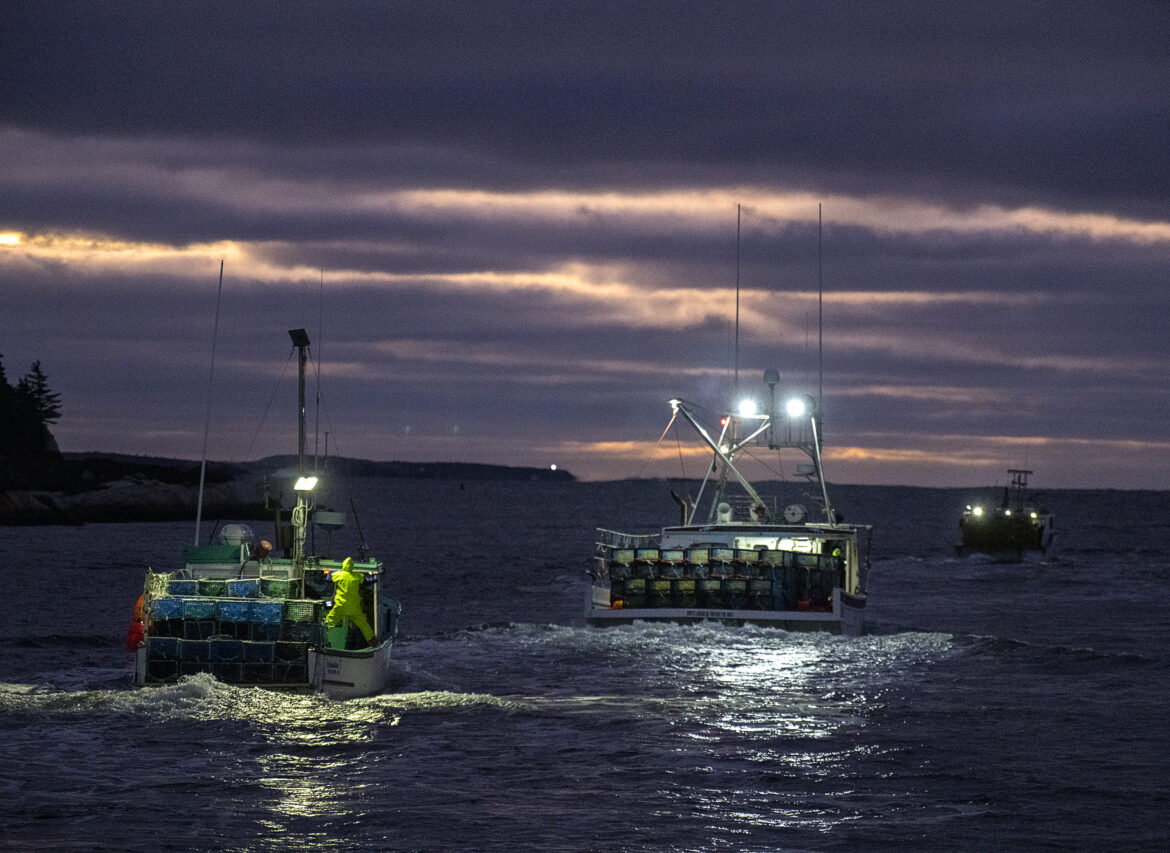666

Lobster boats, loaded with pots and buoys, head from West Dover, N.S. on Tuesday, Nov. 29, 2022 for the opening of the season in Lobster Fishing Area 33. THE CANADIAN PRESS/Andrew Vaughan




